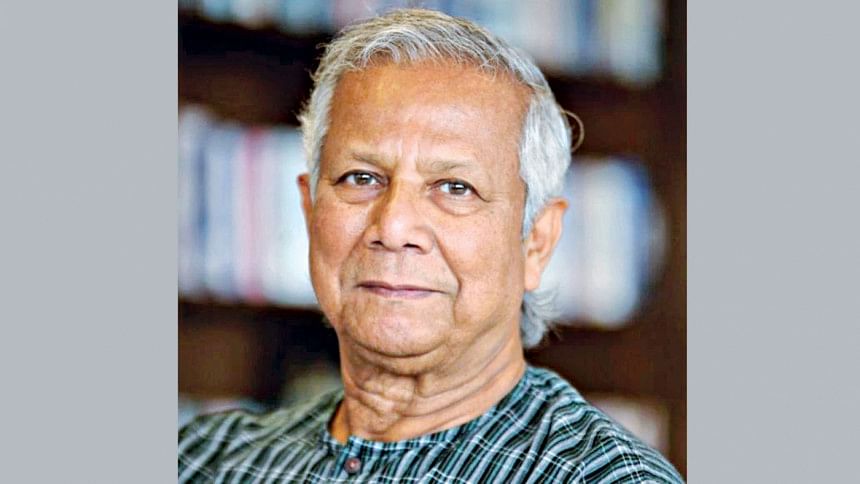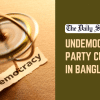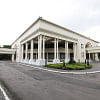State reforms: Govt will now talk to the parties first

In a major shift in its plans, the interim government has decided to sit with the political parties first to discuss reforms before the six commissions commence their work in full swing.
Chief Adviser's Press Secretary Shafiqul Alam revealed the information at a press briefing at the Foreign Service Academy in Dhaka yesterday, a day before the commissions were expected to start their work in full force.
He did not cite any reason behind the change in plan.
The advisory council will solicit the political parties for their opinions in the dialogue which will be held soon, Shafiqul said, without specifying the time.
"The commissions started their work to some extent. They were expected to start their activities fully tomorrow [today]. But now they will start their work after the advisory council holds another round of dialogue with the political parties," he said.
Chief Adviser Professor Muhammad Yunus had sat with the political parties earlier towards the end of August, weeks after taking charge following the fall of the Sheikh Hasina-led Awami League regime.
When a reporter wanted to know if the Awami League would be invited to the next dialogue, Shafiqul asked journalists to talk to the advisers about the matter.
In his address to the nation on September 11, Prof Yunus announced the formation of the commissions to reform the judiciary, the election system, the administration, the police, the Anti-Corruption Commission, and the constitution.
Shahdeen Malik was named the head of the Constitutional Reform Commission; Justice Shah Abu Naim Mominur Rahman the Judicial Reform Commission; Badiul Alam Majumdar the Election System Reform Commission; Abdul Muyeed Chowdhury the Public Administration Reform Commission; Safar Raj Hossain the Police Administration Reform Commission; and Iftekharuzzaman the Anti-Corruption Reform Commission. Supreme Court lawyer Malik was later replaced with Professor Ali Riaz as the head of the Constitutional Reform Commission.
The Daily Star contacted the heads of two reform commissions, who talked to this newspaper on the condition of anonymity.
One mentioned that no government notification on the reform commissions, except for the appointment of Prof Ali Riaz, has yet been issued.
The other commission head noted that not all the members of the commissions have been picked up.
The six commissions' terms of reference have not been fixed either, he added.
He hoped these jobs will be completed soon so they can start working properly.
In his address to the nation, Yunus said the reforms aim to build a state system based on public ownership, accountability, and welfare. He added that the establishment of a fair electoral system and good governance is at the core of these reforms.
The chief adviser said the commissions were expected to formally start their work on October 1 and finish their jobs within three months.
He also said the government would organise discussions with major political parties in the next phase. At the final stage, a comprehensive consultation would be held for three to seven days with representatives of student bodies, civil society, political parties, and the government.
In a meeting with Kristalina Georgieva, managing director of the International Monetary Fund, in the US on September 24, Yunus said the government would hold discussions with the political parties on the recommendations of the commissions.
Once a consensus on the reforms is reached and the voter list is prepared, the date for the election will be announced, he added.
At the press briefing at the Foreign Service Academy, a reporter asked if the world leaders had enquired about the tenure of the interim administration during Yunus's US visit.
Shafiqul said no such discussion was held. "They know that the government has taken steps of major reforms, and it will take time."
Army chief General Waker-uz-Zaman in a recent interview with Reuters said that he will help the government complete the reforms so that elections could be held within the next 18 months.
Shafiqul said the news agency "paraphrased" General Zaman's comments. "The people of the country will decide the time frame," the chief adviser's press secretary said.
'ROCK STAR-LIKE RECEPTION AT UN'
Shafiqul said that Yunus's visit to the US to attend the United Nations General Assembly was "successful and historic".
The head of government in the past two to three decades usually met with two to three regional leaders on the sidelines of the UNGA, but Nobel laureate Yunus held 50 meetings, according to Shafiqul. These included 12 with top global leaders like US President Joe Biden.
"Actually, Yunus was given a rock star-like reception. At the UN Headquarters, whenever he moved, a top leader would spread their arms and hug him. I would say it's a milestone for Bangladesh," he said.
Almost all world leaders said that they support the interim government and want to work with it, Shafiqul said.
Asked why there was no meeting with Indian Prime Minister Narendra Modi during Yunus's US visit, Shafiqul said that the foreign adviser had talked about the issue earlier.
Deputy press secretaries Azad Majumder and Apurba Jahangir were also present at the press briefing.

 For all latest news, follow The Daily Star's Google News channel.
For all latest news, follow The Daily Star's Google News channel. 







Comments